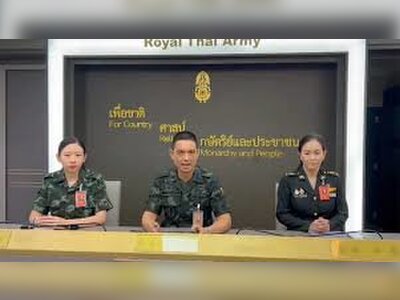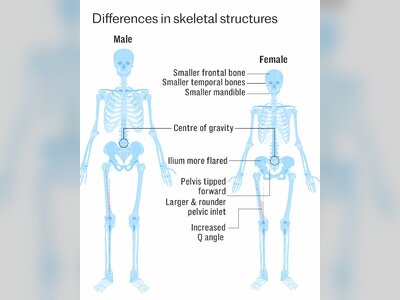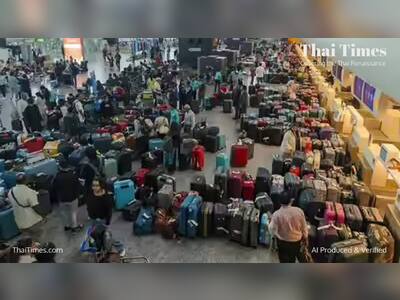
Poll Reveals Shifts in Thai Political Landscape Ahead of Upcoming Elections
Paetongtarn Shinawatra is favored for prime minister, but the People's Party maintains strong support.
In a recent Nida Poll conducted from March 24 to 27, 2025, Paetongtarn Shinawatra, the current prime minister and leader of the Pheu Thai Party, emerged as the most favored candidate for the prime ministerial post, garnering 30.90% of support from the surveyed population.
This marks a notable change from previous surveys where opposition leader Natthaphong Ruengpanyawut of the People's Party held a narrow lead in public favorability.
The poll involved telephone interviews with 2,000 respondents aged 18 and older, representing a diverse cross-section of education levels, occupations, and income brackets across Thailand.
Respondents expressed their reasons for supporting Paetongtarn, highlighting admiration for the Pheu Thai Party’s policies and a desire for the government to continue demonstrating its commitment to the electorate.
In contrast, Natthaphong received 22.90% of support, with many preferring him for embodying a new generation of leadership characterized by transparency and honesty, as well as policies attuned to public needs.
Additionally, 23.50% of respondents reported that they had not yet found a suitable candidate for the position.
Other contenders included Pirapan Salirathavibhaga of the United Thai Nation Party, receiving 8.45%, and Khunying Sudarat Keyuraphan of the Thai Sang Thai Party, with 3.90% support.
Lesser-known political leaders and parties received minimal support, underscoring a competitive landscape.
Anutin Charnvirakul of the Bhumjaithai Party received 2.85%, while Chalermchai Sri-on of the Democrat Party and Gen Prawit Wongsuwon of the Palang Pracharath Party garnered 1.70% and 1.20%, respectively.
When surveyed about political party allegiance, the People's Party led with 37.10% support, followed by the Pheu Thai Party at 28.05%.
A significant portion of respondents, 13.75%, indicated that they did not find any suitable political party to support.
The United Thai Nation Party attracted 8.75% of respondents’ backing, with the Democrat Party, Bhumjaithai Party, Thai Sang Thai Party, and Palang Pracharath Party receiving 3.65%, 3.35%, 2.00%, and 1.85%, respectively.
An additional 1.50% of respondents supported other political parties, which include the Prachachat Party, Chartthaipattana Party, and others.
The changing dynamics reflected in this poll highlight a potentially evolving political landscape in Thailand as the nation moves closer to its upcoming elections.
This marks a notable change from previous surveys where opposition leader Natthaphong Ruengpanyawut of the People's Party held a narrow lead in public favorability.
The poll involved telephone interviews with 2,000 respondents aged 18 and older, representing a diverse cross-section of education levels, occupations, and income brackets across Thailand.
Respondents expressed their reasons for supporting Paetongtarn, highlighting admiration for the Pheu Thai Party’s policies and a desire for the government to continue demonstrating its commitment to the electorate.
In contrast, Natthaphong received 22.90% of support, with many preferring him for embodying a new generation of leadership characterized by transparency and honesty, as well as policies attuned to public needs.
Additionally, 23.50% of respondents reported that they had not yet found a suitable candidate for the position.
Other contenders included Pirapan Salirathavibhaga of the United Thai Nation Party, receiving 8.45%, and Khunying Sudarat Keyuraphan of the Thai Sang Thai Party, with 3.90% support.
Lesser-known political leaders and parties received minimal support, underscoring a competitive landscape.
Anutin Charnvirakul of the Bhumjaithai Party received 2.85%, while Chalermchai Sri-on of the Democrat Party and Gen Prawit Wongsuwon of the Palang Pracharath Party garnered 1.70% and 1.20%, respectively.
When surveyed about political party allegiance, the People's Party led with 37.10% support, followed by the Pheu Thai Party at 28.05%.
A significant portion of respondents, 13.75%, indicated that they did not find any suitable political party to support.
The United Thai Nation Party attracted 8.75% of respondents’ backing, with the Democrat Party, Bhumjaithai Party, Thai Sang Thai Party, and Palang Pracharath Party receiving 3.65%, 3.35%, 2.00%, and 1.85%, respectively.
An additional 1.50% of respondents supported other political parties, which include the Prachachat Party, Chartthaipattana Party, and others.
The changing dynamics reflected in this poll highlight a potentially evolving political landscape in Thailand as the nation moves closer to its upcoming elections.











